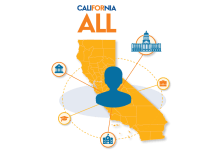The 2015 legislative year saw the introduction of a number of evergreen tax bills that dealt with policies discussed yearly in the Capitol, including targeted taxes and challenges to Proposition 13 in the form of “split roll” property taxes.
The California Chamber of Commerce successfully stopped or amended all of the tax bills that it opposed. Additionally, a number of CalChamber-supported tax bills made it to the Governor’s desk.
Targeted Taxes Introduced
In 2015 were several proposed targeted taxes on specific industries, including tobacco, sweetened beverages, distilled spirits, and commercial property. The CalChamber opposed all these targeted taxes.
Similar to prior legislative efforts, SB 591 (Pan; D-Sacramento) sought to impose an excise tax on every dealer or wholesale provider of cigarettes, the revenue of which would be utilized for health-related programs and education.
AB 1357 (Bloom; D-Santa Monica) sought to impose a $0.02 tax on the sale of any sweetened beverage or concentrate, the revenue of which would also be utilized for health-related programs and education.
ABX2 18 (Bonilla; D-Concord) was a targeted tax on distilled spirits that was introduced in the legislative special session as a proposed solution to raising revenue for state programs that would assist developmentally disabled individuals.
SCA 5 (Hancock; D-Berkeley) and ACA 4 (Frazier; D-Oakley) were the “split roll” property tax bills of the year.
SCA 5 proposed a constitutional amendment to discriminate against commercial and industrial property by assessing such property at the annual fair market value rather than the value of the property at the time it was acquired. This proposal would create a significant tax increase on commercial and industrial property owners, so much so that the author actually included a phase-in schedule of tax payments for commercial property owners to mitigate the tax burden.
Before amendments, ACA 4 provided blanket authority to local governments to impose nearly any type of “special tax” with a reduced voter threshold of only 55%, down from a two-thirds super majority. There were few parameters or restrictions under which a “special tax” could be imposed under ACA 4.
With such broad discretion in the type and scope of “special tax,” ACA 4 could have led to targeted taxes at the local level against unpopular taxpayers, industries, products, or property such as a parcel tax directed only at commercial property within a local jurisdiction.
Flaws
All these bills shared major flaws:
- they targeted one industry to bear the burden of funding programs that would benefit the general public;
- they imposed a tax increase when the state currently has a significant General Fund surplus of more than $2 billion, as well as a $4.2 billion budget reserve; and
- as a tax increase, all the bills required a two-thirds vote of the Legislature, which is not an easy threshold to satisfy. Ultimately, all the bills still remain viable in the second year of the session, but are unlikely to move.
Support Bills
CalChamber also supported several important tax bills that will help businesses in California, including bills dealing with federal tax conformity, the research and development (R&D) tax credit and refunds for illegal taxes.
AB 154 (Ting; D-San Francisco) creates additional conformity between state and federal tax law, which will ease accounting, recordkeeping, and filing requirements for businesses. Differences between state and federal law can cause innocent errors that are unfortunately associated with significant penalties.
AB 154 eliminates that risk by creating conformity on important issues such as net operating losses, as well as improvements to the application of California’s understatement penalty. The bill received bipartisan support through the Legislature and has been signed by the Governor.
Similarly, AB 544 (Mullin; D-South San Francisco) would have created conformity for calculation of the R&D tax credit by eliminating California’s outdated and complicated calculation methodology and adopting a methodology largely similar to the federal R&D credit. Unfortunately, this bill was held in the Assembly Appropriations Committee.
Another bill addressing R&D tax credits, however, did make it to the Governor’s desk. AB 437 (Atkins; D-San Diego) establishes the Research and Development Small Business Grant Program. This bill provides small businesses with the ability to receive grants for a percentage of their unused R&D credits and thereby encourages additional R&D investment in the state.
Finally, AB 2510 (Wagner; R-Irvine) was a reintroduction of a bill from last session that essentially requires the refund of any tax deemed unconstitutional or illegal by a court.
Currently, taxpayers must timely exhaust their administrative remedy by pursuing a refund through the tax agency. Failure to proactively take such action precludes taxpayers from obtaining a refund even when a tax has been deemed illegal or unconstitutional.
AB 2510 would have provided a refund opportunity for more taxpayers who paid the illegal tax but did not initially challenge it. AB 2510 was held in committee and did not move forward.
Staff Contacts: Jeremy Merz, Jennifer Barrera


